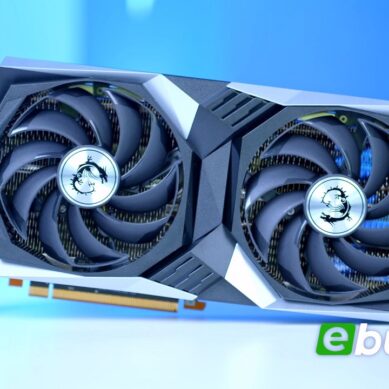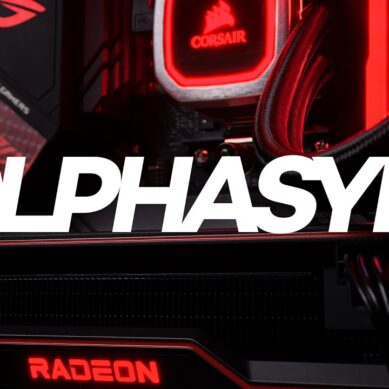
When you’re playing games online, the quality of your connection matters just as much as the number of pixels you’re pushing. After all, what does it matter if your games are rendered in glorious UHD if the server doesn’t register your winning head-shot? In a twitch-based FPS, a few milliseconds can make the difference. But even in more strategic, slow-paced games, the quality of your connection impacts the quality of your experience.
If you’re nodding your head, then the chances are that you recognise the importance of a quality router: one that’s powerful enough to minimise lag, and robust enough to handle the strain that comes when other members of your household decide to connect to your network.
We stock a range of routers to suit a range of budgets. Let’s assess some of the more popular specimens!
TP-Link Archer C7 AC1750
+
Configurable QoS
+ Dual-frequency over six antennae
+Attractive price
-Lacks power compared to its more expensive rivals
TP-Link is a company that specialises in networking devices. It makes routers at several price points, but this one is enormously popular thanks to a winning balance between power, features and affordability. Under the hood, you’ll find a powerful CPU that combines a trio of dual-band antennae to offer blazing speeds on both 2.4Ghz and 5Ghz frequencies (up to 450Mbps and 1300Mbps respectively).
You’ll also get a customisable QoS (Quality of Service) that prioritises certain devices over others. Thus, if you’re looking for minimum lag on
your PC or games console, you’ll be able to ensure that new connections won’t interrupt your experience. There’s also a pair of USB ports for
straightforward connection with external storage and peripherals.
Edimax RG21S
+
MU-MIMO and Beamforming support
+Excellent range
-Average build-quality
This device from Edimax offers an impressive spec-sheet for the money. The user interface is refreshingly straightforward and easily configured (even if you don’t have a PC connected). You can expect speeds of up to 800Mbps at 2.4Ghz and 1733Mbps at 5Ghz, putting wireless performance on a par with what you might expect from a wired connection.
While it might lack some of the fancier customisation features of the other items we’ve listed here, the RG21S does boast something called Multi-User, Multiple-Input, Multiple-Output technology (or MU-MIMO). In setups incorporating multiple devices, this dramatically reduces the time spent waiting to retrieve data from the router, allowing for uninterrupted performance even during ultra-demanding gaming tasks. Customers have also noted the superior power-efficiency of this router over its predecessor – which, given your router is going to be on pretty much all the time, is no bad thing.
Asus RT-AC86U Wireless Router
+
Integration with other Asus devices via AiMesh
+ Customisable firmware
-Not as many ports as more expensive rivals
Asus’s mid-range routers provide a substantial performance increase over the majority of routers on the market – even ones designed specifically for gaming. The RT-AC86U can dish up a healthy 2917Mbps over Wi-Fi, making it a match for even the most demanding gaming household. At this price point, you’ll get a great deal of the features found in Asus’s premium-range routers, including adaptive QoS streaming, WTFast game acceleration, and the companies adaptive AiMesh system, which allows multiple routers to be chained together to provide coverage over a larger area.
Advanced users can squeeze even greater utility from this router by flashing it with a custom firmware, making this a flexible option for
gamers who aren’t quite prepared to fork out for the company’s enthusiast-level hardware.
Netgear XR500 Nighthawk Pro Gaming Router
+
Dual-core processor
+ Powerful security features
+ Exceptional Range
-Expensive
This offering from Netgear comes with a comprehensive feature-set and the hardware to deliver performance to match. Like most gaming-focused peripherals, the XR500 Nighthawk looks a little bit like something Bruce Wayne might keep parked beneath his mansion – but we think that’s no bad thing!
At the rear, you’ll find five gigabit-ethernet ports (four for LAN and one for WAN). Inside, there’s a dual-core 1.7Ghz processor on the inside to
handle all of the data your games can dispense. The Nighthawk’s QoS toolkit has been designed to intelligently detect and prioritise gaming traffic, ensuring an uninterrupted, buttery-smooth experience. You’ll also get MU-MIMO, a plethora of security features and beam-forming (a process which focuses your WiFi signal in the required direction, thus ensuring maximum strength at the point of reception.)
ROG Rapture GT-AC5300
+
Amazingly powerful
+ Unprecedented coverage
+ Extensive connectivity options
-Very pricey
Asus’s ‘Republic of Gamers’ designation is reserved for devices that meet the discerning needs of enthusiasts. This award-winning device is no
exception. If you’re looking for maximum firepower for streaming 4K video and VR content, then the Rapture will deliver it. Under the hood, there’s a bleeding-edge 1.8Ghz quad-core, alongside 1GB of RAM. As such, it’ll handle every task throw at it with aplomb.
If the Netgear brought to mind the Batmobile, then this router looks a bit like an alien artefact, coming with a sleek angular chassis and eight
chunky-looking black antennae which provide coverage for even larger homes.
You’ll be able to keep track of lag, traffic and device connections via Asus’s ‘Gaming Centre’ software, and there are ample connection options,
including eight Gigabit LAN ports and a pair of USB 3.0 sockets. If you’d like even more wireless coverage, you can even partner this router up with compatible Asus routers via AiMesh.
When shopping for a gaming router, you’ll want to take into account a few things. A wired connection that relies on good-old RJ-45 sockets is often the most reliable sort, but where this isn’t practical, wireless gaming is a far more pleasant experience than it was just a few years ago. This is, for the most part, thanks to the introduction of the new 802.11ac standard, which should be considered obligatory for anyone looking to game wirelessly.
Of course, your choice of router will depend on your budget and the demands of your household. If you aren’t sharing a residence with several other bandwidth-hungry gamers, then you might get away with opting for a slightly less powerful router and investing the difference in a new graphics card or gaming chair.
Generally speaking, we gamers tend to underestimate the difference that a quality router will make in eliminating those niggling buffering and lag problems. Make the upgrade to a more capable router and chances are you’ll wonder how you ever coped beforehand!






